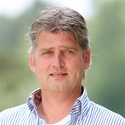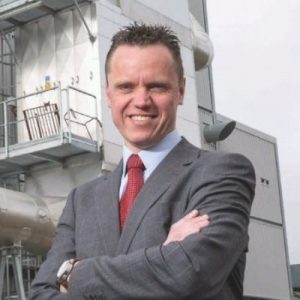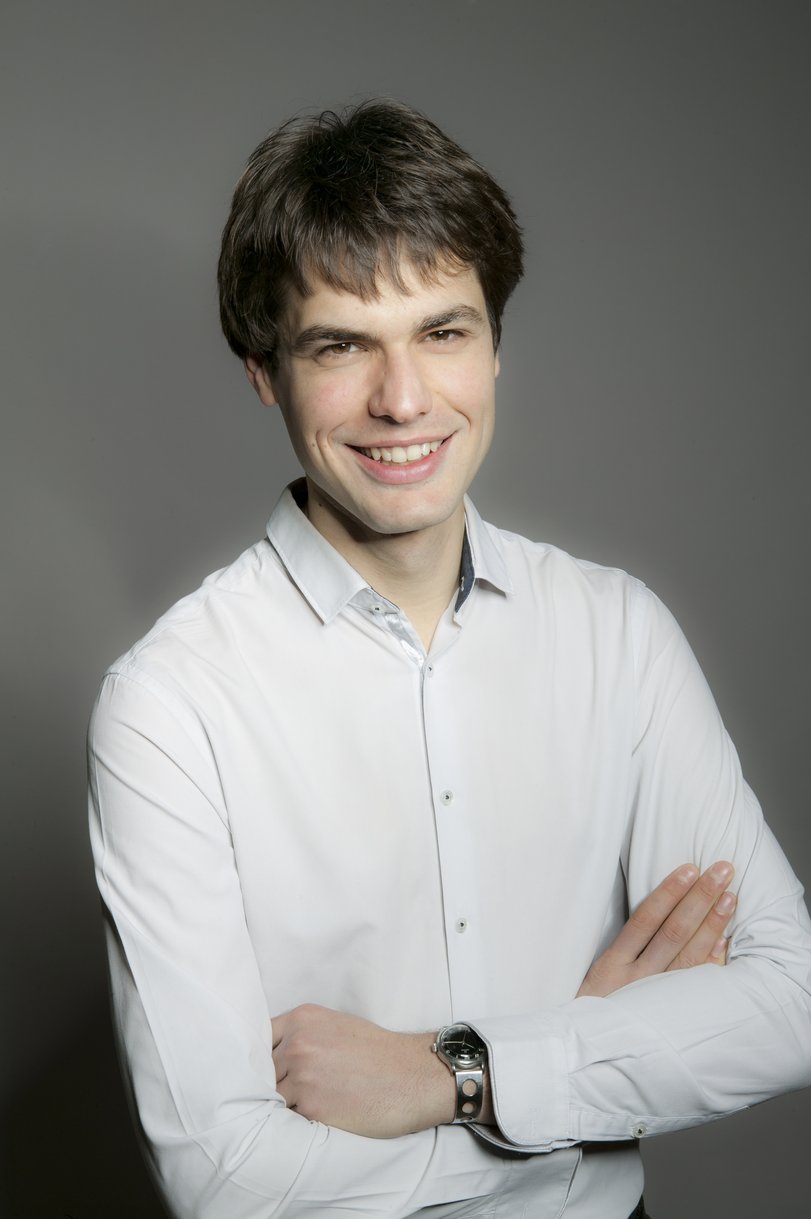
Biorefinery & Bio-Based Chemical
6th – 7th March 2019
Amsterdam, The Netherlands
“The Global Market for Biorefinery Products is expected to clinch $714.6 Billion by 2021 from $466.6 Billion in 2016 at whopping CAGR of 8.9%.
About the Event
The Global Market for Biorefinery Products is expected to clinch $714.6 Billion by 2021 from $466.6 Billion in 2016 at whopping CAGR of 8.9%. Whereas, The global market for wood pellets demand in the industrial sector reached about 13.8 million tonnes in 2016. Every year, only 3% of the 170 million tonnes of biomass produced by photosynthesis is being utilized which can provide a number of opportunities to biorefinery and biochemical to process his biomass. The prime factors driving the Biorefinery & Bio-Based Chemical Industries include growing awareness of environmental issues linking with fossil fuel consumption and inflating global energy demand, consumers’ acceptance for biorefinery products and growing need for energy independence. With the factors driving growth of this market, there are various challenges as well which include degree of complexity with the utilization of multiple feedstock depending on the application requirement, regulated biomass availability and economic & technological risks.
In view of the above developments, Trade Essential is organising Biorefinery & Bio-Based Chemical Conference, highlighting the major innovations and contemporary approaches in Biorefinery & Bio-Based Chemical industries. The conference will cover new research results, European Bioeconomy, waste management, Outlook on Pyrolytic Lignin, Potential of Microalgae, Green Biorefinery Strategies, Overview on Biomates, Carbon Cycle management, Application of Blockchain Biofuel, Research on Bio-Based Epoxy Resin, Mass cultivation of feedstock, and much more.
The Biorefinery & Bio-Based Chemical Conference will be a dynamic gathering of Biorefinery Specialists, Biomass and Bioenergy Scientists, Renewable Energy Directors, Biomethane and Regulation Managers, Energy Sector Consultants, Researchers, Professors, Research Scientists, Chemical Engineers, Legal Advisors, Technology Developers, Fuel Engineers etc. to exchange views on Biorefinery and Biochemicals, to enhance their business strategies, explore the latest trends, and manage the key changes taking place In the industry.
- Regional Outlook and Market Research
- European Outlook: Bio-Industrial and Bio-Refinery
- Outlook on Bioenergy Production
- An Outlook on Pyrolytic Lignin
- Technological Aspects
- Employing Microwave Radiation in Biofuel Production
- Nanotechnology in Microalgal Biorefinery
- Hydrothermal Liquefaction of Algae
- Latest Research on Biorefinery & Bio-Based Chemical
- Challenges and Benefits of using 2G Biomass
- Artificial Cellulase for Cellulosic Ethanol Production
- Beech Wood Bio-Oil for Application as Raw Material
Biorefinery & Bio-Based Chemical is a platform where you can showcase your company, brand your products and services among the targeted audience. Promote your company & gain potential visibility through this summit.
|
Biorefinery & Bio-Based Chemical |
|
| Day 1: 6th March 2019 | |
| 8.30 AM | Registration |
| 9:00 | CHAIRMAN’S WELCOME REMARKS |
| 9:10 |
Biorefinery and Future Potential: Overview of Algal Biomass Output and Market Ahead
Vítor Verdelho Vieira, General Manager, European Algae Biomass Association |
| 9:45 |
Bio-based Chemicals Commercial & Near Market Products.
Kees W. Kwant, Senior Expert on Bioenergy and Biobased Economy, Netherlands Enterprise Agency (RVO.nl) |
| 10:20 |
Bio-based Chemicals Commercial & Near Market Products C1 to Cn
Current production of bio-based chemicals, chemicals that potentially can be produced from major biorefinery platforms, market growth predictions for the production of bio-based chemicals, and an overview of commercial and near market bio-based chemicals. The products are either demonstrating strong market growth or have significant industry investment in development and demonstration. Companies actively developing bio-based chemicals and polymers and information on potential greenhouse gas emission savings and how the co-production of bio-based chemicals with biofuels can influence the economics of biofuels production.
Dr Ed de Jong, Vice President Development – Renewable Chemistries, Avantium |
| 10:55 |
Discussion followed by Morning Coffee & Networking
|
| 11:15 |
Latest on Pyrolysis Technology – Efficiently Converting Biomass to Bio Oil
Gerhard Muggen, Managing Director, BTG Bioliquids BV |
| 11:50 |
Metabolic Engineering: Progression from Molecular Structure to Commercial Microorganism
Cyrille Pauthenier, Founder & CEO, Abolis Biotechnologies |
| 12:25 |
Discussion followed by Networking Lunch
|
| 13:35 |
Pyrolytic Fractionation: A Promising Thermochemical Technique of Biomass via Fast Pyrolysis
Dr Ir. L. (Bert) van de Beld, Chief Technology Officer/Coordinator, Biomass Technology Group BV |
| 14:10 |
Economic Assessment of Dunaliella-based Algae Biorefinery
Production of 9-cisβ-carotene together with value-added chemicals in a Dunaliella-based algae biorefinery is highly promising. So far, Dunaliella salina, which grows in highly concentrated salt-water, is cultivated only for β-carotene production and sold as capsules containing unprocessed dried algae powder. However, separating individual high-value carotenoids and their isomers present in the powder would result in additional value-added products as per specific needs
Prof. Patricia Harvey, Professor, University of Greenwich |
| 14:45 |
Biorefineries: What About Law? An Italian Perspective
REACH offers opportunities for producers to provide safe bio-based alternatives for substances of very high concern. REACH aims to improve the protection of human health and the environment, while at the same time enhancing innovation and competitiveness of the EU chemicals industry. To the best of our knowledge, biobased chemicals are treated identically to petrol based chemicals within REACH. The pace of development of biobased chemicals has outstripped rigorous review of the governance and regulatory implications. The perception that anything biobased is inherently more benign and sustainable is inherently flawed – they are, after all, still chemicals.
Professor Monica Delsignore, Assistant Professor, University of Milan Bicocca, School of Law |
| 15:20 |
Discussion followed by Afternoon Coffee & Networking
|
| 15:50 |
Process Optimization And Plant-Based Chemicals: Extracting Purified Xylitol by HPLC Methods from Fermented Biomass
Dr Yannick Krauke, Application Specialist, KNAUER |
| 16:30 |
Bio-Based Epoxy Resin: Utilization in Lithium-ion Batteries
Dr Helene Jeske, Postdoctoral Researcher, Technische Universität Braunschweig, Institute of Joining and Welding |
| 17:00 |
Assessing Biobased Chemicals Production via Anaerobic Digestion
The anaerobic digestion process is a biological conversion process of biomass into bioproducts. The decomposition process occurs in four stages: Hydrolysis/Liquefaction, Acidogenesis, Acetogenesis, and Methanogenesis, The composition of the biogas produced can then be used as chemical feedstock or as biofuel
Mechanical and Manufacturing Engineering, Dublin City University |
| 17:30 |
Discussion And End of Day 1
|
| Day 2: 7th March 2019 | |
| 9.00 | CHAIRMAN’S WELCOME REMARKS |
| 9:05 |
The Road to a Commercial Biorefinery
Biorefineries are an integral component to the transformation of the chemical industry from petroleum refineries to biobased chemical manufacturing. There has been a significant shift in emphasis towards bio-based chemicals, in recent years the biobased chemicals subsector has grown much faster than the petrochemicals sector, and is predicted to continue to do this. Major bio-based partnerships have launched in Europe, but obstacles to biorefining remain, and policy is not yet directed at enabling the integrated biorefineries of the future. In a world driven by the triple-bottom-line, the economics and societal issues must also favour bio- in comparison with petrochemicals. However, that means that this very young industry must compete head-on with the petrochemicals industry, which has had many decades to perfect its processes.
Dennis Chafiâ, Business Development Manager, Chemicals and Renewable Business, G.I. Dynamics |
| 9:30 |
Extracting of Bio-Base Phenolic from Condensed Tannins and its Application
Dr. Laurent ROUMEAS, Researcher (Organic Chemistry), INRA |
| 10:00 |
Remediation of Effluent CO2 – Economic Production of High Value-Added Chemicals via the Generation of Micro-algae Biomass
Long known for their ability to produce a vast number of different bioactive compounds microalgae hold great promise for new products in the chemical and pharmaceutical industries, as well as the food sector and energy sectors. What’s more, algae have rapid growth rates in CO2-rich environments, representing a big opportunity to overcome the global warming problem caused by the CO2emitted from anthropogenic activities
Jean-Louis Roux Dit Buisson, Founder, NeoCarbons |
| 10:30 |
Discussion followed by Morning Coffee & Networking
|
| 11:00 |
Operating 1000L Flat Panel Photobioreactor in Semicontinuous Mode and Utilizing Algal Biomass in Skin Care and CO2 Sequestration
Dr M. A. Deodhar, Head Of Botany Department, KET’s V. G. Vaze |
| 11:30 |
Hydrothermal Liquefaction of Feedstock: Overview
Prof. Souman Rudra, Associate Professor, University of Agder |
| 12:00 |
Demand for BioProducts Succinic, Itaconic Acid and Biogas: Future Perspective
The global biobased chemicals market is anticipated to register a double-digit growth rate of over ~12% during the review period to reach over ~USD 85 million by the end of 2023
Dr Abdeen Mustafa Omer, (BSc, MSc, PhD), Associate Researcher, Energy Research Institute (ERI) |
| 12:30 |
Final Discussion Following by Lunch
|
| 13:30 | End of Conference |
|
|
|
*Agenda content and timeline subject to change.
|
Dr Helene Jeske |
Dr Helene Jeske was born in Temirtau (Kazakhstan) in 1981. She studied Chemistry at the University of Brunswick – Institute of Technology and received her Ph.D. degree in 2012 at the research organization Fraunhofer Institute for Wood Research Wilhelm-Klauditz-Institut WKI with a main focus at reactive halogen-free high-performance fire retardant coatings. Since 2016 she is postdoc at the Federal Research Institute for Rural Areas, Forests and Fisheries. Her main research project is in the field of biobased 2-component epoxy resin systems as binder in lithium-ion batteries. |
|
Souman Rudra |
Souman Rudra is currently working at the University of Agder, Norway as an associate professor since 2013. He conducts research and teaching within renewable energy technology – related to biomass conversion process and thermal energy systems and analysis of energy conversion systems in general. He has his expertise in design, modeling, and simulation of the different energy system specially bio-energy system. He has been working in Hydrothermal liquefaction technologies for several years and also supervising PhD students in this field. Several articles have been published in this area. Energy and exergy analysis, LCA analysis have also done for several of his designed energy systems. Based on those analyses, he has proposed a quad-generation model for producing power, heat, cooling, and SNG (synthesized natural gas) for the Danish energy system. |
|
Dr Abdeen Mustafa Omer, (BSc, MSc, PhD) |
Dr Abdeen Mustafa Omer (BSc, MSc, PhD) is an Associate Researcher at Energy Research Institute (ERI). He obtained both his PhD degree in the Built Environment and Master of Philosophy degree in Renewable Energy Technologies from the University of Nottingham. He is qualified Mechanical Engineer with a proven track record within the water industry and renewable energy technologies. He has been graduated from University of El Menoufia, Egypt, BSc in Mechanical Engineering. His previous experience involved being a member of the research team at the National Council for Research/Energy Research Institute in Sudan and working director of research and development for National Water Equipment Manufacturing Co. Ltd., Sudan. He has been listed in the book WHO’S WHO in the World 2005, 2006, 2007 and 2010. He has published over 300 papers in peer-reviewed journals, 200 review articles, 15 books and 150 chapters in books. |
|
Dr Yannick Krauke |
Dr Yannick Krauke, born on 13.01.1980 in Berlin. |
|
Prof. Patricia Harvey |
Prof. Patricia Harvey is Professor of Biochemistry and Head of Algae Biotechnology, and a senior expert in bioenergy value chains and the water-food-energy nexus, with particular focus on the use of algal and non-food plant systems for the capture of CO2, use of non-potable water and production of green chemicals and biofuels. Highly experienced in working effectively with European and international collaborators and in managing large complex, multi-partner commercially focused/donor-funded R&D projects under the EC‘s Framework Programmes. Examples of projects: The CO2 microalgae biorefinery: D-Factory (EU-funded); Macrobiocrude (UK-funded); Non-food bio-oil supply chains in South Africa, Namibia and Ghana to create sustainable, non-food supply chains (EU-ACP-funded); Ecotec21 which installed novel, biofuel-fired CHP technology at the University of Greenwich using biooils and glycerol (EU-Interreg); Tuning algae for biofuel profitably (NERC, Innovate UK). Contributed to the Scientific Opinion Food from the Oceans delivered by the Scientific Advisory Mechanism High Level Group of Advisors to the European Commission, to inform Policy Change; co-organized EU conference Algae Biorefineries for Europe 2017. |
|
Dr Ir. L. (Bert) van de Beld |
Dr Ir. L. (Bert) van de Beld (male) studied Chemical Engineering at the University of Twente in the Netherlands. He joined BTG in 1995 and was appointed as CTO in 2002. He was involved in several projects on the thermochemical conversion of biomass in energy, fuels and chemicals including torrefaction, pyrolysis, HTL and gasification. Currently, he is a.o. the coordinator of the EU funded project Bio4Products concerning the production of biobased products from fast pyrolysis oil. |
|
Gerhard Muggen |
Gerhard Muggen is managing director and shareholder of BTG Bioliquids BV (BTG-BTL) and joined BTG-BTL in 2008. As managing director he is responsible for the strategy of BTG-BTL and the worldwide marketing and sales. Gerhard has been working for Holec, Wartsila Diesel and Stork Thermeq the last 20 years. Gerhard worked for Stork Thermeq for 8 years as Sales manager and the last four years as Vice President Marketing and Sales. In the last job he was responsible for the international marketing and sales department and directly involved in the marketing and sales in China, India and Russia. Gerhard was also responsible for organizing and initiating new developments and marketing new technologies. |
|
Vitor Verdelho Vieira |
Vitor Verdelho Vieira is mentor of several companies that he co-founded with partners in different sectors. He started his first biotech company Necton, SA – www.necton.pt in March 1989, now a European leader in the production and sale of traditional sea salt and fleur de sel, as well as the production of microalgae for aquaculture and cosmetics. He is also co-founder of A4F – Algae for Future, SA – www.a4f.pt an international reference company in the sector of microalgae technologies. One of his main interests is algae biomass biorefinery. He is currently the President of EABA the European Algae Biomass Association, with headquarters in Florence, Italy. His business experience is wide and ranges from engineering consulting and real estate to biotechnology and medical devices. In the different companies, he developed and participated in more than 40 R&D projects (more than half related with algae biomass) along the last 25 years and interacted with more than 200 different organizations in Europe. Between 2000 and 2015 he has been involved in the management of SpinLogic the entrepreneurship programme and business Incubator from the Catholic University in Porto, where he followed and supported more than 200 startup projects. He is presently visiting professor in Católica Porto Business School and School of Arts in Catholic University in Porto, Portugal. He has a background in Physics from the Porto University Sciences Faculty and established his management knowledge through through consulting experience and more than a dozen specialized training courses in Portugal and abroad in the last 30 years. See: https://pt.linkedin.com/in/vitorverdelho |
|
Jean-Louis Roux Dit Buisson |
Jean-Louis has 25 years of experience in developing and growing technology based companies covering materials and processes and health care industries. |
|
Dennis Chafiâ |
Dennis Chafiâ studied Organic Chemistry in Leiden, The Netherlands. After his studies, he joined G.I. Dynamics in the role of Business Development manager Chemical & Renewable Business, being responsible for initiating the implementation of commercial scale biorefineries around the globe. G.I. Dynamics is currently involved in several biorefinery projects globally, including but not limited to Turkey, South Africa and Europe. G.I. Dynamics furthermore participates in URBIOFIN, a project under BBI-JU, in which several value products will be produced from Municipal Solid Waste. Dennis Chafiâ had several political functions as well, among others Vice President of CDJA, and City Council Member in the municipality of Westland. |
|
Cyrille Pauthenier |
Cyrille Pauthenier, PhD. graduated from École Normale Supérieure (ENS) in Paris, Master in System and Synthetic Biology in Paris-Saclay University and a doctorate in metabolic engineering at Paris-Saclay University. In 2014, he co-founded Abolis Biotechnologies, with the aim of bringing state-of-the-art methodologies in metabolic engineering for the development of new micro-organism capable of producing any arbitrary chemical molecules using fermentation of renewable resources. The company is currently developing a lot of different technology from pathway prototyping to optimized industrial strain construction in house and partners with scale-up and DSP experts in order to cover the entire value chain. Abolis aims at offering to the industry by 2020 a complete service in which, for any arbitrary molecule, we find a metabolic route, demonstrate its functionality and bring the project from the idea to a robust industrial process. |
|
Dr. M.A. Deodhar |
1)Name : Dr Mrs Manjushri A Deodhar. 2)Head and associate professor of Botany V G Vaze college,affiliated to Mumbai University. 3)34 years of teaching experience to undergraduate, post graduate students. 4) Guided 15 students for PhD degree in Botany as well as Biotechnology. 5) About 25 international publications. 6) Associated with algal CO2 sequestration project funded by Government of India. |
|
Dr. Laurent ROUMEAS |
Laurent ROUMEAS received his MS degree in Medicinal Chemistry in 2010, then his PharmD, from the University of Strasbourg. He got his PhD in Organic Chemistry in 2013 from the University of Montpellier, working on polyphenols in order to open new accesses to natural (poly)phenolic building blocks and fine chemicals without endocrine effects. After several post-doctoral projects, he joined in 2018 the French National Institute of Agronomic Research (INRA) where he continues his works on the biomass transformation and valorization in various application areas as fully biobased materials and bioactive hemisynthetic molecules. |
|
Professor Monica Delsignore |
Monica Delsignore was born in Vercelli, Italy, on 1st December 1974. She graduated in 1998 and took her PhD in administrative law in 2001 with a dissertation on public services. She is now assistant professor (reader) of Administrative Law at the University of Milan Bicocca, School of Law. Her research interests lie in the field of Public and Administrative Law, broadly conceived. She is author of two books on arbitration and market regulation and of several articles and contributions to collective works on various topics of Administrative Law and European Administrative law. She teaches or has taught Environmental Law, Administrative Law, U.S. Administrative Law, Administrative Judicial Proceeding and Sports law. Her current research interests are focused on standing in judicial review and waste legislation. |
|
Dr Ed de Jong |
Dr Ed de Jong graduated at Agricultural University Wageningen, the Netherlands and also defended his PhD thesis at the Agricultural University Wageningen, the Netherlands on the degradation of lignocellulose by white-rot fungi (1993). He has been research associate for 3 years at the University of British Columbia, Vancouver, Canada at the group of Jack Saddler, on the use of softwood species for biofuels application. He has been Head of the Department of Fibre and Paper Technology, Food and Biobased Research, Wageningen University & Research Centre, The Netherlands. He joint Avantium in 2007. He is currently VP Development – responsible for Public-Private partnerships of Avantium. In addition he is involved in feedstock selection and pretreatment (Avantium’s Dawn TechnologyTM and Mekong technologies) and Catalytic Biomass Conversion of carbohydrates into building blocks for polyesters such as PEF, an improved replacement of PET. He is also involved in the valorization of side products of the YXY & Zambezi Processes, cq lignins, humins and levulinates. He is part of the management team of the Stichting Topconsortium voor Kennis- en Innovatie – Biobased Economy (TKI-BBE) and he is co-chair of the IEA-Bioenergy Task 42 on biorefineries. He is involved in drafting the annual work program (AWP) or the BBI via the Biobased Industries Consortium (BIC). |
|
Kees W. Kwant |
Kees W. Kwant is a Senior Expert on Bioenergy and Biobased Economy at the Netherlands Enterprise Agency (RVO.nl). He primarily links researchers and industry to help develop the biobased economy and bioenergy. Kees has a background in Fluid Dynamics and Technology Development from the Technical University Twente. His industry experience includes work at DSM to develop fermentation processes (a large Dutch multinational company active in the fields of health, nutrition and materials), and he was the programme manager of the national solar energy programme of the Netherlands. He has extensive experience in enabling the development of a biobased economy, including the development and implementation of bioenergy in the Netherlands and abroad. Kees holded the Chair of the IEA Bioenergy (www.ieabioenergy.com) Technology Collaboration Programme till 2018 and is the executive member for the Netherlands. He participates in bilateral collaboration on bioenergy between Netherlands and South Africa, Malaysia, Brasil and Ukraine. |
|
Delegate
€799
|
Exhibitor
€999
|
|
| All Conference Session | ||
| Conference Proceedings | ||
| On-Site Lunches | ||
| Refreshment Breaks | ||
| 1 Table-Top Display | ||
| Logo Promotion | ||
| 1-Page ad in Conference Brochure | ||
| Register | Register |
Note: All payments are made in EURO.
Registration fee only covers cost of all sessions, luncheon, coffee/tea & presentations. Fee does NOT include any travel or accommodation expenses. Fee is not inclusive of 8% Admin/Bank Charges.
Venue
BILDERBERG GARDEN HOTEL
Dijsselhofplantsoen 7, 1077 BJ Amsterdam
Netherlands
Trade Essential has arranged special discounted room rates at Euro 129 per room per night including breakfast excluding 7% city tax and €2,20 service fee per person per day (subject to room & rates availability) for delegates at Bilderberg Garden Hotel.
Hotel Contact Details for Reservation –31 (0)20-5705655 or e-mail to banquet@bilderberg-gardenhotel.nl
Kindly Quote the code TRAD060319 while making your reservation.
















